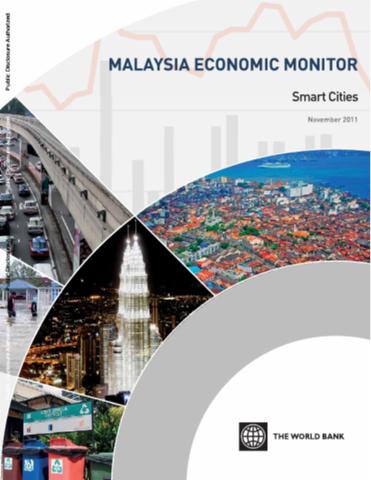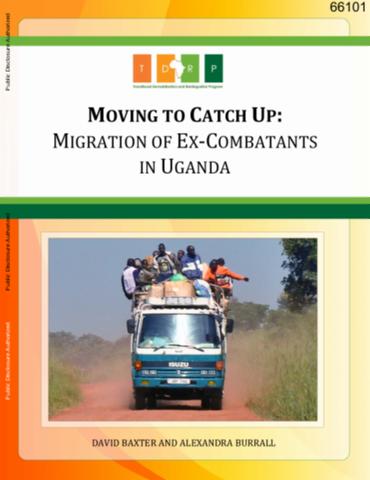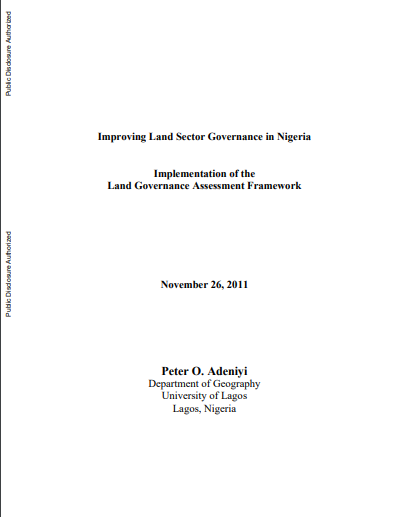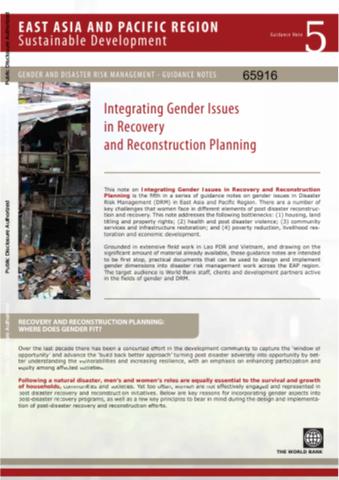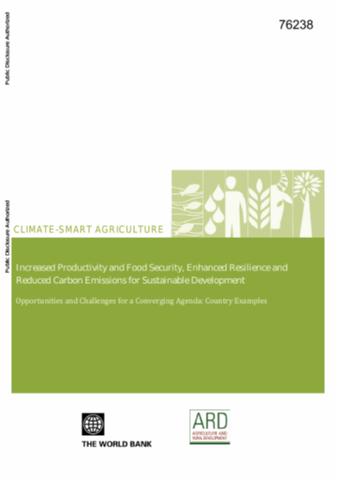The World Bank is a vital source of financial and technical assistance to developing countries around the world. We are not a bank in the ordinary sense but a unique partnership to reduce poverty and support development. The World Bank Group has two ambitious goals: End extreme poverty within a generation and boost shared prosperity.
- To end extreme poverty, the Bank's goal is to decrease the percentage of people living on less than $1.25 a day to no more than 3% by 2030.
- To promote shared prosperity, the goal is to promote income growth of the bottom 40% of the population in each country.
The World Bank Group comprises five institutions managed by their member countries.
The World Bank Group and Land: Working to protect the rights of existing land users and to help secure benefits for smallholder farmers
The World Bank (IBRD and IDA) interacts primarily with governments to increase agricultural productivity, strengthen land tenure policies and improve land governance. More than 90% of the World Bank’s agriculture portfolio focuses on the productivity and access to markets by small holder farmers. Ten percent of our projects focus on the governance of land tenure.
Similarly, investments by the International Finance Corporation (IFC), the World Bank Group’s private sector arm, including those in larger scale enterprises, overwhelmingly support smallholder farmers through improved access to finance, inputs and markets, and as direct suppliers. IFC invests in environmentally and socially sustainable private enterprises in all parts of the value chain (inputs such as irrigation and fertilizers, primary production, processing, transport and storage, traders, and risk management facilities including weather/crop insurance, warehouse financing, etc
For more information, visit the World Bank Group and land and food security (https://www.worldbank.org/en/topic/agriculture/brief/land-and-food-security1
Resources
Displaying 4566 - 4570 of 4907Malaysia Economic Monitor, November 2011
The Malaysian economy decelerated as solid domestic demand was not sufficient to offset a weakening external environment. Private consumption growth continued at a healthy pace. Favorable rubber and palm oil prices drove up incomes of smallholders while continued employment and wage growth supported urban incomes. In contrast, fixed investment was more volatile, with private investment showing signs of picking up while public investments lagged.
Moving to Catch Up
The purpose of this study was to provide a better understanding for policy makers and service providers of mobility and migration among ex-combatants and the effectiveness of Disarmament, Demobilization and Reintegration (DDR) programming in Uganda. The study followed a scoping study on migration in Uganda conducted in March 2011 by the Transitional Demobilization and Reintegration Program (TDRP) of the World Bank.
Improving land sector governance in Nigeria : implementation of the land governance assessment framework (English)
Nigeria is covered by two major types of vegetation: (i) the forest types consisting of mangrove swamp, freshwater swamp, and the tropical rainforest dominantly found in the south; and (ii) the savanna types consisting of Guinea, derived, Sudan, and Sahel savanna covering the middle belt and northern part of Nigeria. In spite of the rich endowments, Nigeria is still facing a lot of development challenges.
Integrating Gender Issues in Recovery and Reconstruction Planning
This note on integrating gender issues in recovery and reconstruction planning is the fifth in a series of guidance notes on gender issues in Disaster Risk Management (DRM) in East Asia and Pacific region. There are number of key challenges that women face in different elements of post disaster risk reconstruction and recovery. This note addresses the following bottlenecks: a) housing, land titling and property rights, b) health and post disaster violence, c) community services and infrastructure restoration, and d) poverty reduction, livelihood restoration and economic development.
Increased Productivity and Food Security, Enhanced Resilience and Reduced Carbon Emissions for Sustainable Development
The purpose of this paper is to summarize the challenges and the practical successes that a selected number of countries are experiencing in moving towards 'climate-smart' agriculture while also meeting the food requirements of a growing population, broader economic development and green growth objectives. It complements papers prepared in 2010 on technologies and policy instruments, research, and farmers' perspectives.






